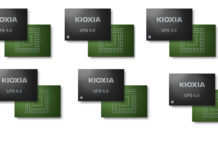There’s a strong focus on data querying and analysis in this week’s digest. Data querying has been improved by Elastic enhancing its search products. A US research institute is using MemVerge’s virtual memory to speed plant DNA analysis. And data warehouse data feeder Fivetran has pulled off an amazing funding round.
Apart from these things we look at two funding rounds for Fivetran and Stairwell, and have masses of shorter news items about people being hired and product news. Grab a coffee and read on …
Elastic stretches its software
Elastic has announced enhancements to its ElasticSearch Platform offering with v7.15 Elastic. The platform includes Elasticsearch and Kibana, and its three built-in features: Elastic Enterprise Search, Elastic Observability, and Elastic Security.
Web crawler improvements in Search include automatic crawling controls, content extraction tools, and the ability to analyse logs and metrics natively in Kibana, giving users a single platform to search all of their organisation’s data. There is a native Google Cloud data source integration with Google Cloud Dataflow, providing customers with faster data ingestion in Elastic Cloud.
APM (Application Performance Monitoring) correlations, now generally available in Elastic Observability, help DevOps teams and site reliability engineers accelerate root cause analysis and reduce mean time to resolution by automatically surfacing attributes correlated with high-latency or erroneous transactions.
Enhancements have been added to Limitless Extended Detection and Response (XDR) in Elastic Security, including malicious behaviour protection for Windows, macOS and Linux hosts, and one-click host isolation for cloud-native Linux environments. Powered by analytics that prevent attack techniques leveraged by known threats, malicious behaviour protection strengthens existing malware and ransomware prevention by pairing post-execution analytics with response actions to disrupt adversaries early in an attack.
Read a blog to find out about several more additions made by Elastic.
MemVerge case study
Penn State Huck Institutes of the Life Sciences is using MemVerge’s Memory Machine Big Memory software to speed genomic analytic processing in plant DNA research to develop plant products that can better sustain droughts, diseases and achieve longer transportation and shelf life. The bioscientists at Penn State need to analyze genome sequences that are even more complex than human genomes. Using traditional analytic methods, it could take weeks to process specific workloads and running jobs can often fail as data is much larger than the available compute memory.
By deploying a pool of MemVerge software-defined DRAM and Optane persistent memory (PMem), the Institute has been able to speed the completion of its analytic pipeline and run jobs that it hasn’t been able to process before.
In the MemVerge announcement, Claude dePamphilis, Director of the Center for Parasitic and Carnivorous Plants at Penn State Huck Institutes of the Life Sciences, said: “The innovative technology helps us achieve DRAM-like performance from a mixed memory configuration. This has not only dramatically increased our time to research findings but has also saved us considerable budget in the process.”
We respectfully suggest he meant to say “dramatically decreased our time to research findings”. 🙂
Fivetran funding
Data integration startup Fivetran has taken in a massive $565 million at a valuation of $5.6 billion, taking total funding to $730 million. The round was led by Andreessen Horowitz with existing investor General Catalyst and new investors such as YC Continuity. Fivetran also bought private equity-owned HVR and its enterprise, mission-critical, real-time database replication technology for $700 million in a cash-and-stock transaction.
The new funding made the acquisition possible.
Fivetran was founded in 2012 and its funding history shows a hockey-stick curve:
- 2013 — $743,000 seed
- 2017 — $3.4M second seed
- 2018 — $15M A-round
- 2019 — $44M B-round
- 2020 — $100M C-round
- 2021 — $565M D-round
A chart shows this spectacular betting at the Fivetran funding casino in more detail:
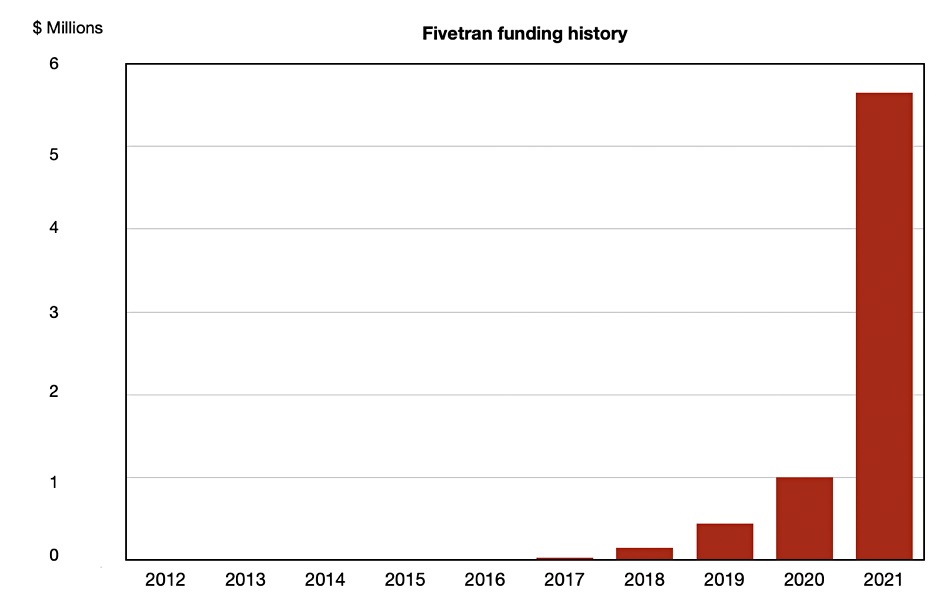
The reason for this funding frenzy, panic investing almost — don’t you think it resembles panic buying? — is that Fivetran’s software, provided as a managed service, provides connectors to get formatted data into data warehouses, such as Snowflake, from disparate and distributed data sources. The sources can be databases, files, applications, events and functions. Fivetran is, in one way, just another ETL (Extract, Transform and Load) process, but provided as a separate function with more than 150 pre-built change data capture connectors and automated schema migrations.
Fivetran has more than 1000 customers, such as ASICS, Autodesk, Monzo, Square, DocuSign, Everlane and Lime. A blog explains some of Fivetran’s thinking behind the HVR deal.
HVR sold itself for $51 million to private equity business Level Equity Management in 2019 and has a partnership with Snowflake and Snowflake competitor Databricks. The Fivetran deal represents a near 14x return for Level Equity Management.
VC bets on data analytics, spurred by the success of Snowflake’s IPO, are getting bigger and bigger. This is blitz-scaling with a vengeance.
Stairwell Funding

Palo Alto-based startup Stairwell has raised $20 million in an A-round and launching an Inception offering to detect threats by looking at a company’s data. Stairwell was founded in 2019, by CEO Mike Wiackek, an ex-principal software engineer at Google. He worked on threat analysis intelligence at an Alphabet company called Chronicle, which he co-founded.
There the main development was called Backstory — a planet-scale data analysis platform that could search petabytes of security data in just milliseconds.
Stairwell’s web site reads “Security is currently practised as a linear process, but ideally it is circular, continuous and should alway be building on itself. And, it should always start by looking at what’s most important to an organisation, which is their own internal data. Good security starts with a deep understanding of the assets, software, and files inside your environment.“ It calls this an inside-out approach.
Investors include Sequoia, Accel, Allen and Company and Gradient Ventures. Inception is in a beta test release with GA slated for next year.
Shorts
archTIS, supplying software for collaboration of sensitive information, has acquired select assets including customers, technology and the European operations of Cipherpoint Ltd’s software division. This includes the IP for cp.Protect, a SharePoint on-premises data encryption offering, and cp.Discover, a data discovery and classification platform. Existing cp.Protect and cp.Discover customers include DHL, Bank of Finland, California State University, Arthur J Gallagher, US DARPA, Singapore Power, Singapore Tote and Acronym Media.
Cirrus Migrate Cloud can migrate live block data from a public cloud-based or on-premises block storage system to Azure. Migration uses cMotion technology and is performed while the original system is still in operation. It involves distributed Migration Agents running on every host that allows direct Host-to-Host connections. Each Host-to-Host migration is independent making the solution infinitely scalable, without central bottlenecks for the dataflow. A user guide explains more.
Cloud-native service provider Civo has launched a new region in Germany, based in Frankfurt, for its Kubernetes-focussed cloud platform, adding to existing regions in the USA and UK. It aims to be a disruptive alternative to the hyperscale providers, such as AWS, Google and Microsoft. Civo’s platform launched to early access in May 2021, and the company has seen strong demand for Civo Kubernetes with users from over 130 countries worldwide, and Germany accounting for nearly five per cent of its user base. Civo will launch a further region into Asia this year, with another five regions planned across the globe in 2022.
FileCloud which offers file sync-and-share to enterprises, has introduced v21.2 of its product, which features a native drag-and-drop workflow automation tool that allows managers and team members to create business workflows with no coding necessary.
Multi-cloud security vendor Fortanix announced a partnership with cloud data warehouser Snowflake to make its Data Security Manager SaaS (DSM SaaS) available to Snowflake customers, giving them the ability to tokenise data inside and outside Snowflake. Tokenisation is related to masking. It replaces personally identifiable information (PII) such as credit card account numbers with non-sensitive and random strings of characters, known as a ‘Token’, that preserves the format for the data and the ability to extract the real information.
Public cloud supplier Linode is rolling out NVMe SSD storage. The rollout kicks off in the company’s Atlanta data center, with the remainder of its global network upgrading over the next quarter. It includes the company’s first erasure-coded block storage cluster, using Ceph. The performance upgrade is provided free to all Linode customers. Linode Block Storage rates will remain at $0.10/GB per month. Customers with existing block storage volumes in Linode’s ten other global data centres will be able to migrate their block storage volumes when NVMe becomes available.
AIOps supplier OpsRamp announced a summer release which includes alert predictions for preventing outages and incidents, alert enrichment policies for faster incident troubleshooting, and new monitoring integrations for Alibaba Cloud, Prometheus metrics ingestion, Hitachi, VMware, Dell EMC, and Poly. CloudOPs engineers can visualize, alert, and perform root cause analysis on ECS instances, Auto Scaling, RDS, Load Balancer, EMR, and VPC services within Alibaba Cloud and accelerate troubleshooting for multi-cloud infrastructure within a single platform.
Platform9 can run virtual machines (VMs) on Kubernetes and you can read about it in a white paper. This should be called Project Uznat <- read it backwards and think VMware.
Startup Pliops which sells an x86 server offloading XDP storage accelerator, has set up a distribution deal with TD SYNNEX covering North America. Pliops has implemented a partner assist, channel-centric go-to-market strategy and will strategically align with systems integrators and value-added resellers offering database, analytics, ML/AI, HPC and web-scale solutions, as well as cloud deployments.
Pure Storage’s FlashBlade file and object-storing array has been adopted by DC BLOX, a provider of interconnected multi-tenant datacentres across the Southeastern US. The array comes through Pure-as-a-Service and Pure’s Evergreen storage service for non-disruptive upgrades and future expansion.
Redstor, a UK- and SaaS-based data protection and management supplier, is partnering with Bocada, so its automated, aggregation of backup and storage performance metrics reduce the work for MSPs involved in daily backup operations monitoring, monthly SLA audits and provide better reporting.
Samsung’s T7 SSD is a credit card size portable external drive with up to 2TB capacity and a USB 3.2 Gen-2 connecting cable. The drive uses embedded PCIe NVMe technology and can transfer data fast, with sequential reads up to 1050MB/sec and sequential writes at 1000MB/sec. The aluminium-cased drive can survive a fall up to two metres, weighs 58 grams, and has a three-year warranty. It’s compatible with PCs, Macs and Android devices and comes in silver, blue and red colours.

Earlier this month Seagate’s La Cie unit launched the LaCie Mobile SSD Secure, and the LaCie Portable SSD, both with up to 2TB capacity and the same read and write performance as Samsung’s T7 drive. OWC’s Envoy Pro Elektron portable external SSD, like the La Cie and Samsung products, also uses a USB 3.2 Gen-2 cable connector and has equivalent performance.
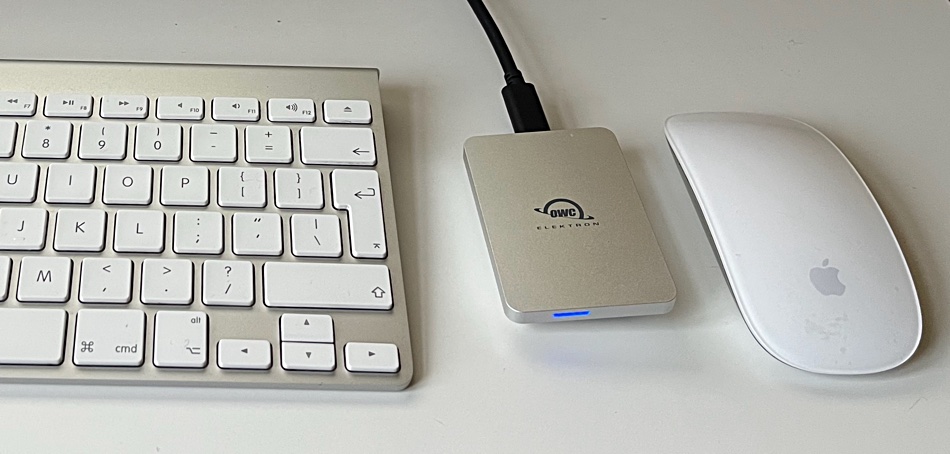
Scale Computing, which supplies HCI systems for edge sites — smaller and remote IT sites — says it’s doing well in the North America public sector, with sales to the Kitselas First Nation, a self-governing nation and tribe in British Columbia, The Summit County Board of Elections in Ohio, and Madison County, Kentucky.
Scality has announced Splunk SmartStore-Ready validation with its RING product providing Splunk customers with petabyte-scale storage for SmartStore single-site, multi-site active-active and multi-site stretched deployments. A Scality blog explains the details: “Scality RING holds the master copy of warm buckets while indexers’ local storage is used for hot and cache copies of warm buckets. With most data residing on Scality RING, the indexer maintains a local cache that contains a minimal amount of data: hot buckets, copies of warm buckets participating in active or recent searches, and bucket metadata. This renders indexers stateless for warm and cold data, boosting operational flexibility and agility.”
Seagate is working with Microsoft to provide more affordable expansion SSDs for the Xbox XIS console. Such expansion storage has a proprietary format. There is talk of a 500GB capacity card costing around $150. The existing 1TB card costs $220 or so but you can get a 1TB M.2 format SSD for $130 or less. A French media outlet, Xboxsquad.fr, reported this story.
The SNIA (Storage Networking Industry Association) has made v1.2.3 of Swordfish available for public review. Swordfish extends the DMTF Redfish Scalable Platforms Management API specification to define a comprehensive, RESTful API for managing storage and related data services. Version 1.2.3 adds enhanced support for NVMe advanced devices (such as arrays), with detailed requirements for front-end configuration specified in a new profile, and enhancements to the NVMe Model Overview and Mapping Guide. It also includes new content in both the User’s Guide and the Error Handling Guide. You can also learn more about SNIA Swordfish and access developer resources here.
The SNIA’s Developer Conference runs from September 28 to September 29. There are over 120 technical sessions on topics including NVMe, NVMe-oF, Zoned Storage, Computational Storage, Storage Networking, Persistent Memory, and more. Register here.
Synology is launching a cloud-based C2 Backup forever-incremental offering. It backs up Windows devices, whether they are located at home (C2 Backup For Individuals) or distributed across multiple offices (C2 Backup For Businesses). Data backed up on C2 Backup is fully shielded against unauthorised access by end-to-end AES-256 encryption, with a user-held private key necessary to unlock backup files and sensitive information. File-level recovery allows you to retrieve any file you need immediately, while entire devices can be restored to their previous state with bare-metal recovery.
TeamGroup is developing a liquid-cooled SSD family — yes, really. The T-Force Cardea Liquid II drives are for extreme gamers. This SSD is an M.2 format product and presumably will run at high speed for longer than at room temperature.
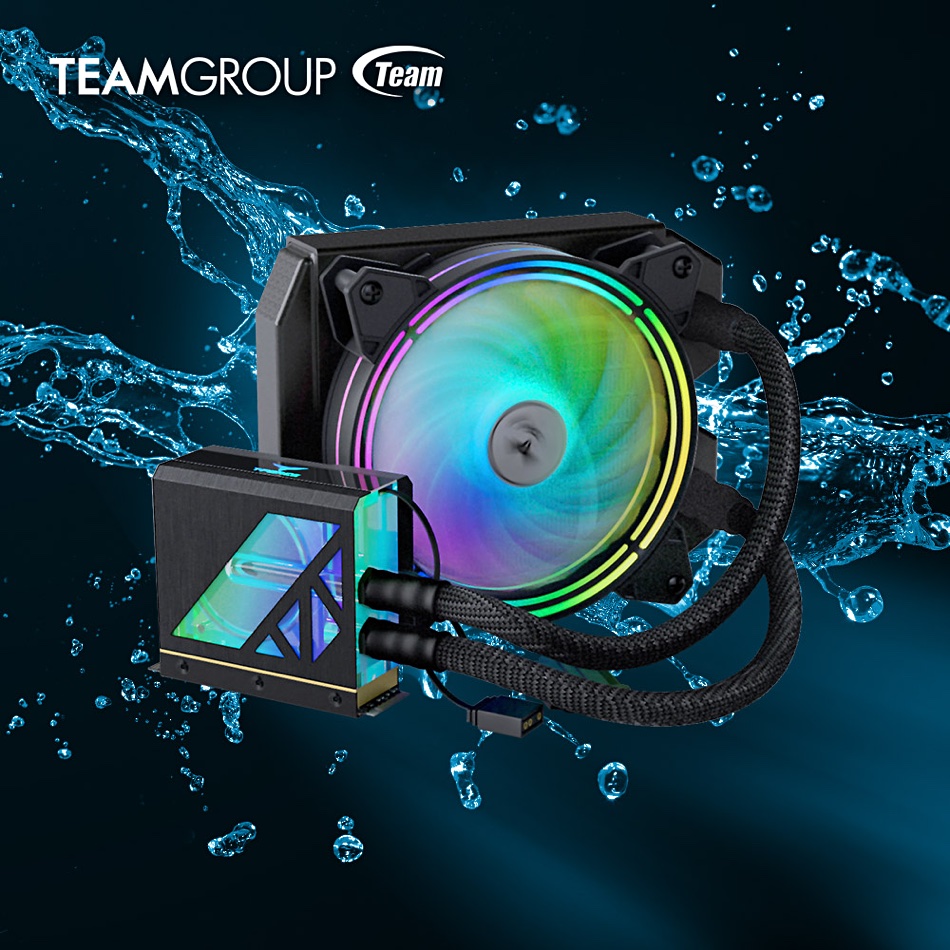
China’s TerraMaster has a D16 Thunderbolt 3 tower storage box for digital image technology workflows. It as 16 bays for 3.5-inch SATA disks or 2.5-inch SSDs and can be configured with a total storage capacity of up to 288TB (18TB HDDs x 16). The box has a 40Gbit/sec connection, delivering speeds of up to 2817MB/sec when fitted with 16 SSDs in RAID 0 array mode on Windows OS. In RAID 6 mode, it can deliver speeds of up to 2480MB/sec.
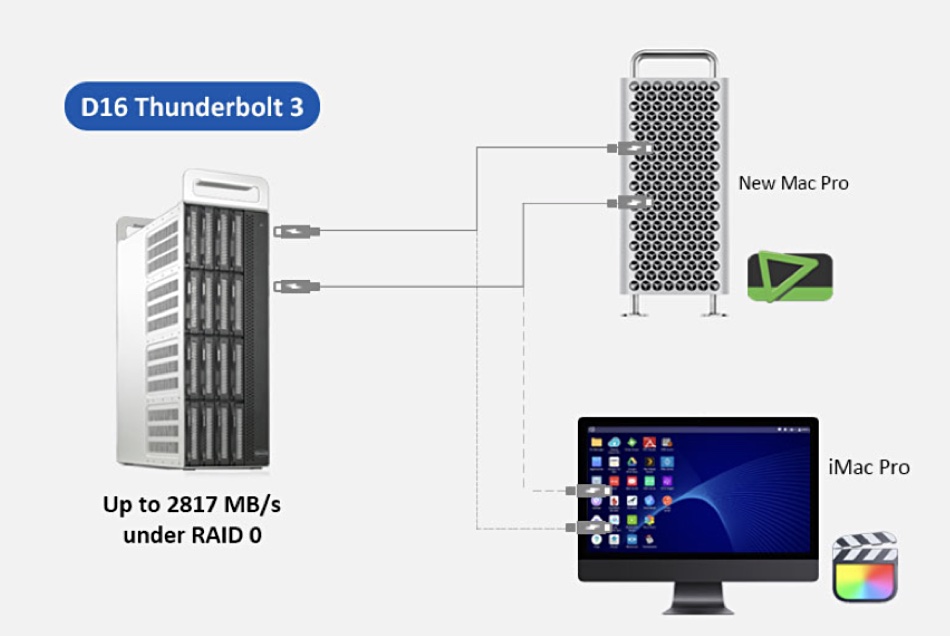
Yugabyte, which supplies an open-source distributed SQL database, announced the general availability of Yugabyte Cloud, its fully-managed, public database-as-a-service offering. Developers can create and connect to a highly scalable, resilient Postgres compatible database in minutes with zero operational overhead.
Managed storage provider Zadara has a deal with connectivity supplier Zenlayer for its fully-managed zStorage to be available in Zenlayer’s North American locations and will soon expand into emerging markets such as India, China, and South America. Zadara and Zenlayer now offer managed storage solutions that businesses can deploy from on-premises datacentres, private colocation facilities, or the cloud with 100 per cent OpEx model.
People
Cloud backup and file storage supplier Backblaze has appointed two new board members: Evelyn D’An and Earl E. Fry. D’An currently serves as a member of the board of directors of Summer Infant, Inc. and is a former partner of Ernst & Young, where she spent 18 years serving clients in retail, consumer products, technology, and other sectors. Fry serves as a member of the board of directors of Hawaiian Airlines, including as chair of their Audit and Finance Committee. Previously, Fry was chief financial officer, chief administrative officer, chief customer officer, and executive vice president, operations strategy at Informatica Corporation.

HCI and virtual SAN supplier StorMagic has hired a new CEO, Danial Beer, ex-CEO of Ottawa-based GFI Software, to replace the departed Hans O’Sullivan. Beer will oversee operational efficiencies and moves into Edge, security and video surveillance markets.
We asked if “operational efficiencies” refers to layoffs, office closures or other cost-cutting measures and a StorMagic spokesperson replied: “We are in a growth phase of the company and are expanding, not shrinking. The reference to operational efficiencies means we will align our operational processes with our GTM strategy to accelerate growth. We are continuing to find ways to update our operations to better enable our expected growth.”



